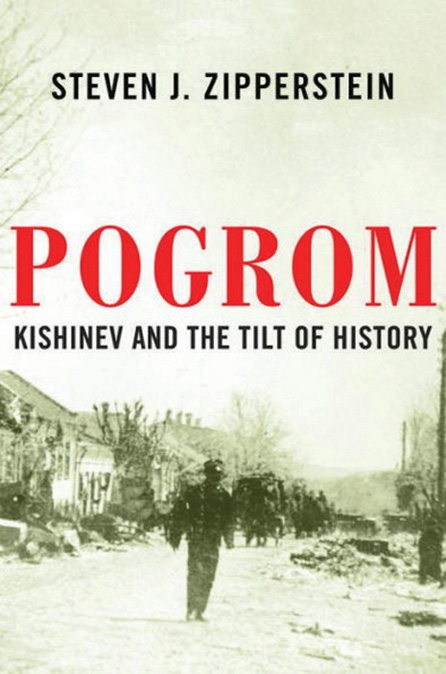 “Pogrom: Kishinev and the Tilt of History” by Steven J. Zipperstein, Liveright Publishing, 2018, 261 pages, $27.95
“Pogrom: Kishinev and the Tilt of History” by Steven J. Zipperstein, Liveright Publishing, 2018, 261 pages, $27.95
In April, 1903, following Easter services, a riot broke out in Kishinev, a city in the Moldavian Province of Czarist Russia. In the following two days 49 Jewish men were murdered and many more Jewish women were raped. Jewish homes and businesses were ransacked throughout Kishinev. Jewish life in this community would never be the same.
Historian Steven Zipperstein uses all his scholarly ability to determine what actually occurred in Kishinev and explains how it became the turning point in Jewish history for many events, including the founding of Israel, the Shoah and mass emigration from Europe to the United States. He examines the accounts of reporter Michael Davitt whose newspaper articles captured the minds of his American readers at the beginning of the 20th century. He studies the account the poet Chaim Nahum Bialik whose poem “In the City of Killing” became required reading for students in Palestine and then in the state of Israel. Zipperstein also looks at the accounts of noted Russian anti-Semites like Pavel Krushevan who was in all likelihood one of the main authors of The Protocols of the Elders of Zion, a toxic anti-Semitic forged document that inspired endless years of hatred for the Jews.
Zipperstein describes how the news of the Kishinev pogrom sparked Zionist activity. It also encouraged American Jews to help in the founding of the National Association for the Advancement of Colored People. The news of the pogrom was also a factor in Lenin’s desire to overthrow the czar and create the Russian Communist state.
This book is amazing for its scholarship. As a granddaughter of a survivor of the pogrom, the history has a great resonance for me personally. To learn how a pogrom in a small community in Russia could become the spark for emigration, Zionism and Hitler’s horrible deeds was shocking and fascinating. Given its bloody details, “Pogrom” cannot be described as a page-turner that a reader cannot put down. However, it is a very important book for anyone who wants to know 20th century Jewish history.
Andrea Kempf is a retired librarian and award winning book reviewer who speaks throughout the community on various topics related to books and reading.


